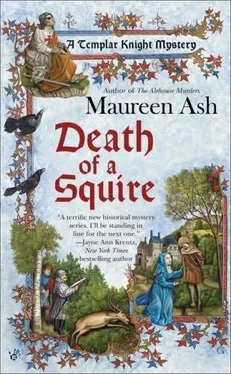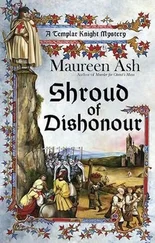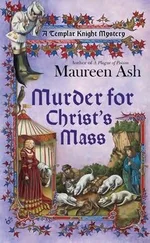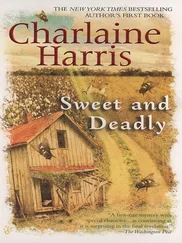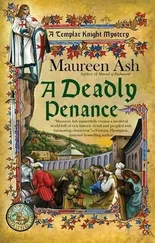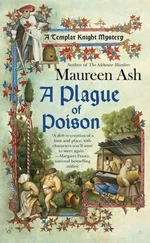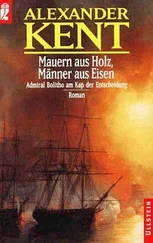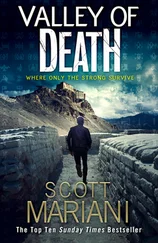Maureen Ash - Death of a Squire
Здесь есть возможность читать онлайн «Maureen Ash - Death of a Squire» весь текст электронной книги совершенно бесплатно (целиком полную версию без сокращений). В некоторых случаях можно слушать аудио, скачать через торрент в формате fb2 и присутствует краткое содержание. Жанр: Исторический детектив, на английском языке. Описание произведения, (предисловие) а так же отзывы посетителей доступны на портале библиотеки ЛибКат.
- Название:Death of a Squire
- Автор:
- Жанр:
- Год:неизвестен
- ISBN:нет данных
- Рейтинг книги:3 / 5. Голосов: 1
-
Избранное:Добавить в избранное
- Отзывы:
-
Ваша оценка:
- 60
- 1
- 2
- 3
- 4
- 5
Death of a Squire: краткое содержание, описание и аннотация
Предлагаем к чтению аннотацию, описание, краткое содержание или предисловие (зависит от того, что написал сам автор книги «Death of a Squire»). Если вы не нашли необходимую информацию о книге — напишите в комментариях, мы постараемся отыскать её.
Death of a Squire — читать онлайн бесплатно полную книгу (весь текст) целиком
Ниже представлен текст книги, разбитый по страницам. Система сохранения места последней прочитанной страницы, позволяет с удобством читать онлайн бесплатно книгу «Death of a Squire», без необходимости каждый раз заново искать на чём Вы остановились. Поставьте закладку, и сможете в любой момент перейти на страницу, на которой закончили чтение.
Интервал:
Закладка:
Bascot had expected to find someone, one of the other squires or a priest, keeping vigil beside the body, but the space around the bier was empty, although candles had been lit at either end only recently. Their flickering light illuminated the chamber with an eerie glow. A cloth of dark velvet had been laid over the coffin, leaving only the boy’s head and shoulders open to view, with a square of white linen spread over the face to hide the ravages of the crows. Around his neck another length of linen was loosely wound, presumably to conceal the mark of the rope that had been the instrument of his death. Against the wall, on the far side of the bier, stood a box containing the boy’s clothing, boots and dagger. Bascot lifted the items out and scrutinised them. The material of both hose and tunic was expensive, marked with stains and scrapings that could have come from rough handling before the boy was dead, or on the journey back to Lincoln slung over Tostig’s horse. His boots were in the same condition. The cloak was wool, a dark brown in colour, and was shredded at collar and hem. The fastening had been a simple silver gilt clasp and was still pinned to the fabric near the shoulder. The dagger was a well-made one, not ornate, but of good tempered steel. Surely, Bascot mused, if outlaws had been the cause of the boy’s death they would at least have taken the pin and dagger, even if they had not had time to remove his clothes.
Finally the Templar examined Hubert’s body. The squire seemed to have been sturdily built, judging by the breadth of his shoulders and the muscles that swelled in his neck. It seemed strange that, with such strength, he had not fought his attacker. Reluctantly, Bascot removed the protective cover from the face, standing for some moments looking at what was left of Hubert’s visage. Someone, probably the castle leech, had sewn up the worst of the damage, but little was left to indicate what the boy had looked like. A soft ribbon had been bound under the jawbone and up over the top of the head to keep the mouth closed and hide the remnants of the lad’s tongue, which, Bascot guessed, the crows would have found particularly delectable. Soft circles of lead had been laid over the eyeless sockets and his hair, a vivid chestnut in colour, had been pulled down low over his forehead to hide more of the birds’ relentless feeding. Altogether there was not much left to indicate the appearance of the boy whose soul had been prematurely forced from its earthly home.
Muttering a brief prayer and asking heaven’s forgiveness for his intrusion, Bascot gently moved aside the linen around Hubert’s neck. The rope and the boy’s clothing had been of some protection against the birds and, beneath the cloth, the mark of the rope was clear, still angry and showing starkly against the bleached hue of the surrounding flesh. The abrasion was rough and deep, running from beneath the chin and up behind his ears, ending in a large contusion on the left-hand side, which must have been made by the knot in the noose. Bascot wondered again how the boy had been taken without a struggle. Had he been threatened with a knife or a sword? Or perhaps surreptitiously given a potion that would render him senseless? Gently he ran his hands over the squire’s head. There seemed to be no swellings that would indicate he had been knocked unconscious before being hanged. Again the Templar examined the rope burn, pushing the cloth a little lower. Just faintly he could see another mark almost parallel with the deeper one. It ran around the neck, from back to front, more of an indentation than an abrasion. Bascot laid his fingers in it, felt it run across the boy’s larynx and, at the nape of the neck, his searching fingertips found a tiny raising of the flesh, as though it had been pinched. He pondered for some moments, then gently raised Hubert’s head, searching in the dim light of the candles for visual confirmation of what he had found. The mark was there, consistent with something thin having been wrapped around the boy’s neck and twisted tight, not enough perhaps to kill him, but certainly with enough force to take him out of his senses. But why? Why leave the deed half done? The murder could surely have been completed then and there without the additional need of a rope. Why this throttling twice over, when the intent, all along, must have been to kill? Perhaps the murderer had been interrupted during his grisly act and forced to delay its completion. But, if that was so, why was the garrotte not used to finish the task? What had been the need to use both cord and rope? To have done so seemed excessive and bothersome.
He examined the mark again. It would have passed unnoticed when the sheriff and his brother had stripped him and looked for some sign of a wound, missed as being part of the deeper mark left by the hanging. Hubert had certainly gone to his death without protest, but only because someone had slipped up behind him and reduced him to a state that made him unable to fight for his life.
It was this thought that kept Bascot awake that night, bringing with it an outrage at the stealth of the crime, the cowardice of it. He had spent long years in captivity, knew the helplessness that came with being a slave, unable to defend oneself from physical harm or mental torture, and he felt a strange empathy with the dead squire, losing his life without being able to put up the least resistance.
He lay awake for the rest of the night, listening to the slow tramp of the men-at-arms on night duty as they passed along the wall connected to the tower he was in, and the quiet murmur of their conversation as they stopped for a few moments’ rest and a little gossip. From the bailey came only silence, broken intermittently by the lowing of a restless cow or the squawk of a goose. As he lay he wondered if he had missed anything else when he had examined Hubert’s body and belongings. He would not get another opportunity to view the corpse, for soon it would be gone to its final resting place.
Sleep was just beginning to invade his restless mind when, towards dawn, the noise of men and horses stirring in the bailey awoke him. Bascot remembered that Gerard Camville had arranged for a hunt that morning. Meat was always needed for the table but, even with the annual late autumn slaughter of cattle that were too old or infirm to be fed through the winter, and the killing of deer trapped in the sheriff’s buckstalls, feeding King John and all the attendant guests would demand an additional supply.
Just as dawn was about to break, Bascot heard the yelping of hounds and the strident tones of the kennel master as he called his charges to order. The Templar got up from his pallet and pushed his eyepatch back into place. Soon the horn would blow to signal for the gate to be opened and the sheriff and his hunting party would leave. Quietly Bascot slipped on an extra padded tunic over the one he was wearing, then threw his cloak around his shoulders before bending down to place a hand on Gianni’s shoulder. The boy was fast in slumber, only his nose peeping out from beneath the mound of covers in which he was ensconced. Bascot hated to wake him but Gianni became alarmed if he found his master absent and did not know where he was. A fear of vulnerability left over, no doubt, from the time Bascot had found him begging for food on a wharf in Palermo.
Gianni came awake instantly at Bascot’s touch, his eyes looking the question his tongue could not ask.
“It’s alright, Gianni. I am going to follow the hunt. You may go back to sleep or break your fast, if you wish. I will be back by midday.”
It was a measure of the boy’s growing confidence that he nodded quickly in agreement and did not show any distress at being left alone. A few months before he had dogged Bascot’s footsteps like a shadow and was only comfortable out of his master’s presence when he was in the protective company of Ernulf or in the midst of the pack of hounds in the castle hall.
Читать дальшеИнтервал:
Закладка:
Похожие книги на «Death of a Squire»
Представляем Вашему вниманию похожие книги на «Death of a Squire» списком для выбора. Мы отобрали схожую по названию и смыслу литературу в надежде предоставить читателям больше вариантов отыскать новые, интересные, ещё непрочитанные произведения.
Обсуждение, отзывы о книге «Death of a Squire» и просто собственные мнения читателей. Оставьте ваши комментарии, напишите, что Вы думаете о произведении, его смысле или главных героях. Укажите что конкретно понравилось, а что нет, и почему Вы так считаете.
